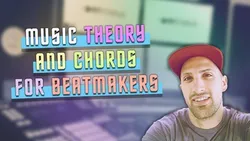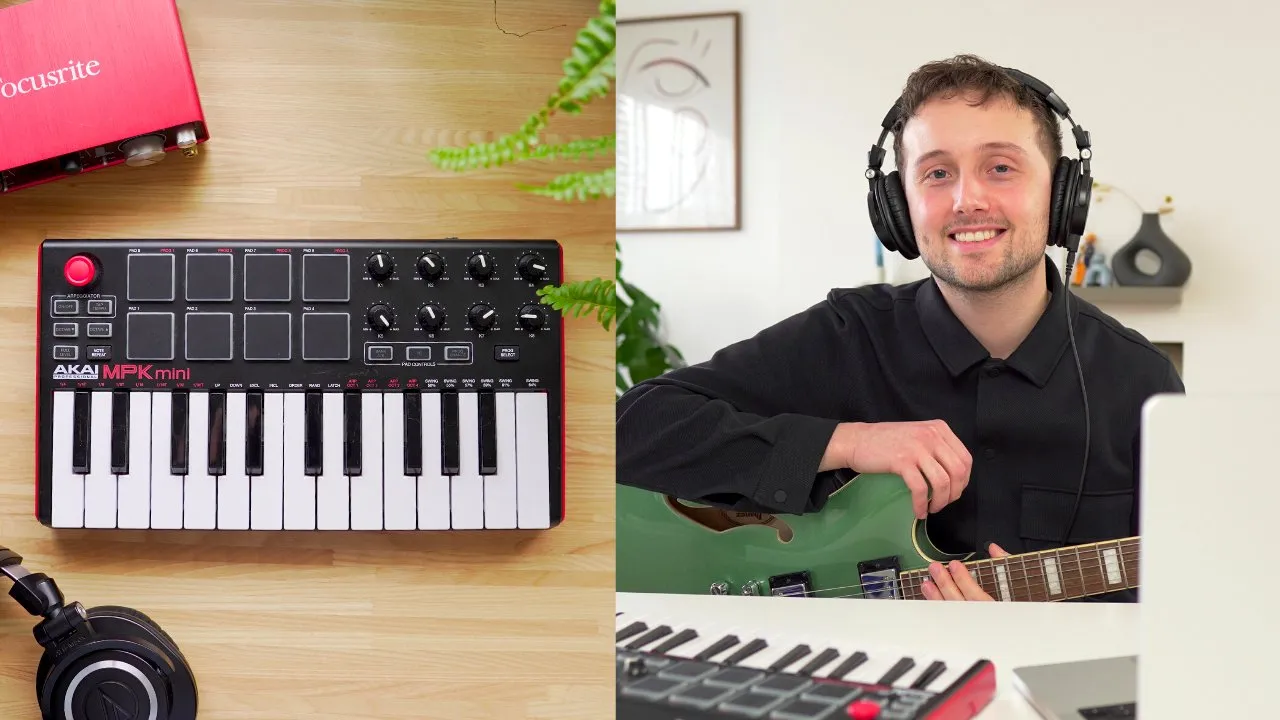
Music Theory and Chords for Beatmakers and Producers 
This course is designed to help beatmakers and producers understand the fundamentals of music theory and chords. It emphasizes the importance of having a strong foundation in music theory in order to create amazing beats. Through this course, beatmakers and producers will gain the knowledge and skills to take their music to the next level. ▼
ADVERTISEMENT
Course Feature
![]() Cost:
Cost:
Free Trial
![]() Provider:
Provider:
Skillshare
![]() Certificate:
Certificate:
Paid Certification
![]() Language:
Language:
English
![]() Start Date:
Start Date:
On-Demand
Course Overview
❗The content presented here is sourced directly from Skillshare platform. For comprehensive course details, including enrollment information, simply click on the 'Go to class' link on our website.
Updated in [February 21st, 2023]
This course is designed to help beatmakers and producers understand the fundamentals of music theory and chords. It covers topics such as counting beats, understanding notes and scales, comprehending major and minor chords, and putting music theory into practice. Learners will gain a concrete basis for understanding the notes available for them to play, how to count beats, and comprehend the major and minor chords to be creative with. They will also learn how to make their music sound better with available free tools. This course is perfect for those who want to take their music production and composition skills to the next level.
[Applications]
Upon completion of the course 'Music Theory and Chords for Beatmakers and Producers', participants will have a concrete basis for understanding the notes available for them to play, how to count beats, and comprehend the major and minor chords to be creative with. They will also be able to apply their music theory knowledge to real-world-practice, work with a bassline, and make their music sound better with available free tools.
[Career Paths]
The career paths recommended to learners of this course are:
1. Music Producer: Music producers are responsible for creating and producing music for various media outlets, such as radio, television, film, and video games. They work with musicians, composers, and sound engineers to create the desired sound. Music producers must have a strong understanding of music theory and chords in order to create the desired sound. As technology advances, music producers are increasingly using digital tools to create and produce music.
2. Music Composer: Music composers are responsible for creating original music for various media outlets, such as film, television, video games, and commercials. They must have a strong understanding of music theory and chords in order to create the desired sound. Music composers must also be able to work with musicians, sound engineers, and other professionals to create the desired sound.
3. Music Educator: Music educators are responsible for teaching music theory and chords to students of all ages. They must have a strong understanding of music theory and chords in order to effectively teach their students. Music educators must also be able to work with students of all ages and backgrounds in order to help them understand the concepts.
4. Music Arranger: Music arrangers are responsible for arranging music for various media outlets, such as film, television, video games, and commercials. They must have a strong understanding of music theory and chords in order to create the desired sound. Music arrangers must also be able to work with musicians, sound engineers, and other professionals to create the desired sound.
[Education Paths]
Recommended Degree Paths:
1) Bachelor of Music: This degree program provides students with a comprehensive understanding of music theory, composition, and performance. It also covers topics such as music history, music technology, and music business. This degree is ideal for those who want to pursue a career in music production, composition, or performance. Additionally, the degree provides a strong foundation for those who wish to pursue a graduate degree in music.
2) Master of Music: This degree program provides students with an advanced understanding of music theory, composition, and performance. It also covers topics such as music history, music technology, and music business. This degree is ideal for those who want to pursue a career in music production, composition, or performance. Additionally, the degree provides a strong foundation for those who wish to pursue a doctoral degree in music.
3) Doctor of Musical Arts: This degree program provides students with an in-depth understanding of music theory, composition, and performance. It also covers topics such as music history, music technology, and music business. This degree is ideal for those who want to pursue a career in music production, composition, or performance. Additionally, the degree provides a strong foundation for those who wish to pursue a career in academia or research.
4) Music Technology: This degree program provides students with a comprehensive understanding of music technology, including topics such as audio engineering, music production, and music software. This degree is ideal for those who want to pursue a career in music production, composition, or performance. Additionally, the degree provides a strong foundation for those who wish to pursue a career in music technology or audio engineering.
Developing Trends:
1) Music streaming: Music streaming is becoming increasingly popular, and this trend is expected to continue in the future. As a result, music producers and beatmakers need to be aware of the latest streaming technologies and how to use them to their advantage.
2) Virtual instruments: Virtual instruments are becoming increasingly popular, and this trend is expected to continue in the future. As a result, music producers and beatmakers need to be aware of the latest virtual instrument technologies and how to use them to their advantage.
3) Music production software: Music production software is becoming increasingly popular, and this trend is expected to continue in the future. As a result, music producers and beatmakers need to be aware of the latest music production software technologies and how to use them to their advantage.
4) Music education: Music education is becoming increasingly popular, and this trend is expected to continue in the future. As a result, music producers and beatmakers need to be aware of the latest music education technologies and how to use them to their advantage.
Pros & Cons

Very well explained.

Practical information easy to understand.

Excellent background for beginners.

Unnecessary talking.

Not suitable for experienced.

Pricey.
Course Provider

Provider Skillshare's Stats at AZClass
Discussion and Reviews
0.0 (Based on 0 reviews)
Explore Similar Online Courses

Baking for Beginners: Mouthwatering Mexican Desserts

Create Mockups on your iPad with Procreate

Python for Informatics: Exploring Information

Social Network Analysis

Introduction to Systematic Review and Meta-Analysis

The Analytics Edge

DCO042 - Python For Informatics

Causal Diagrams: Draw Your Assumptions Before Your Conclusions

Whole genome sequencing of bacterial genomes - tools and applications

Orchestral Music Composition & Music Theory for Video Games

Music Theory for Songwriters: From Beginner to Producer


Start your review of Music Theory and Chords for Beatmakers and Producers